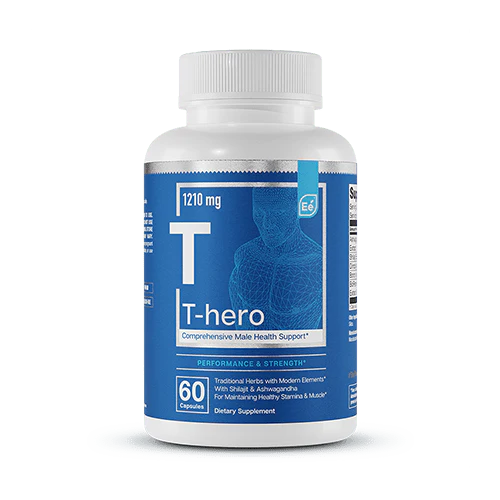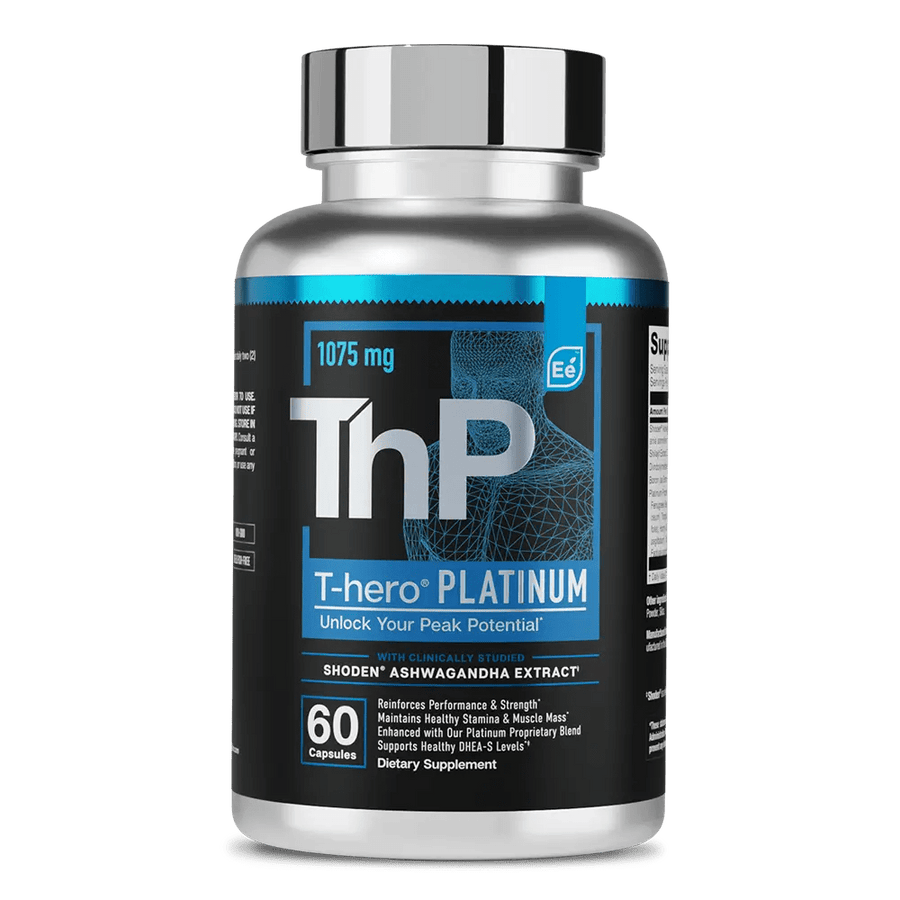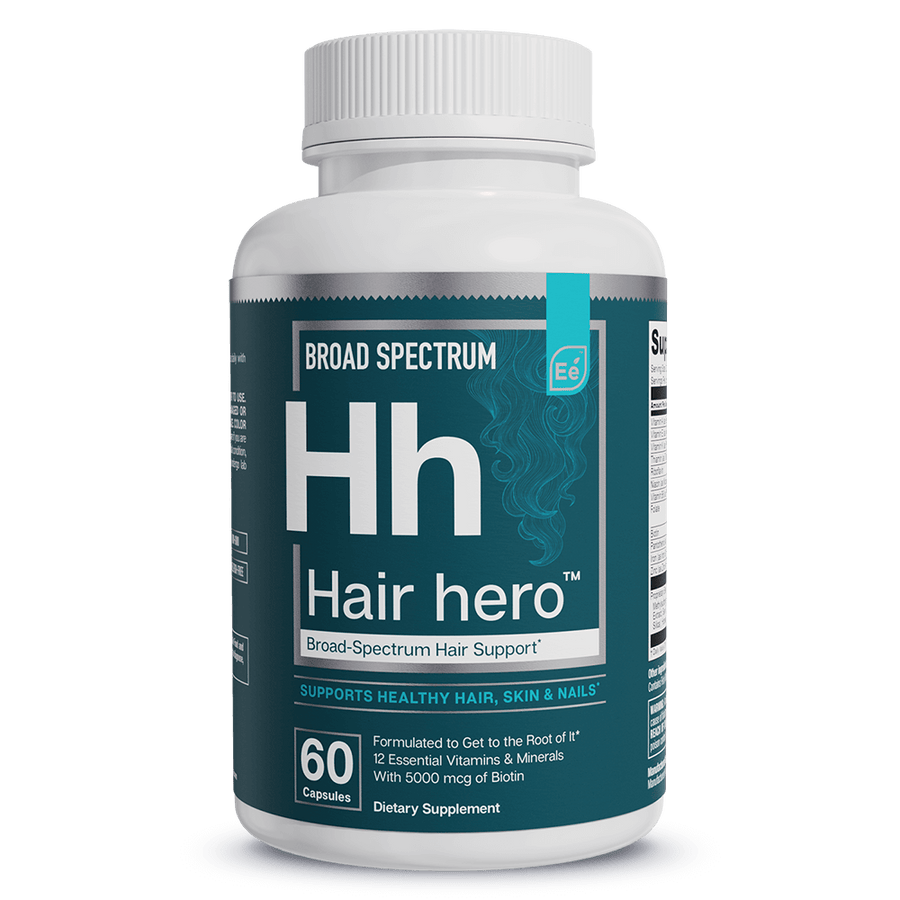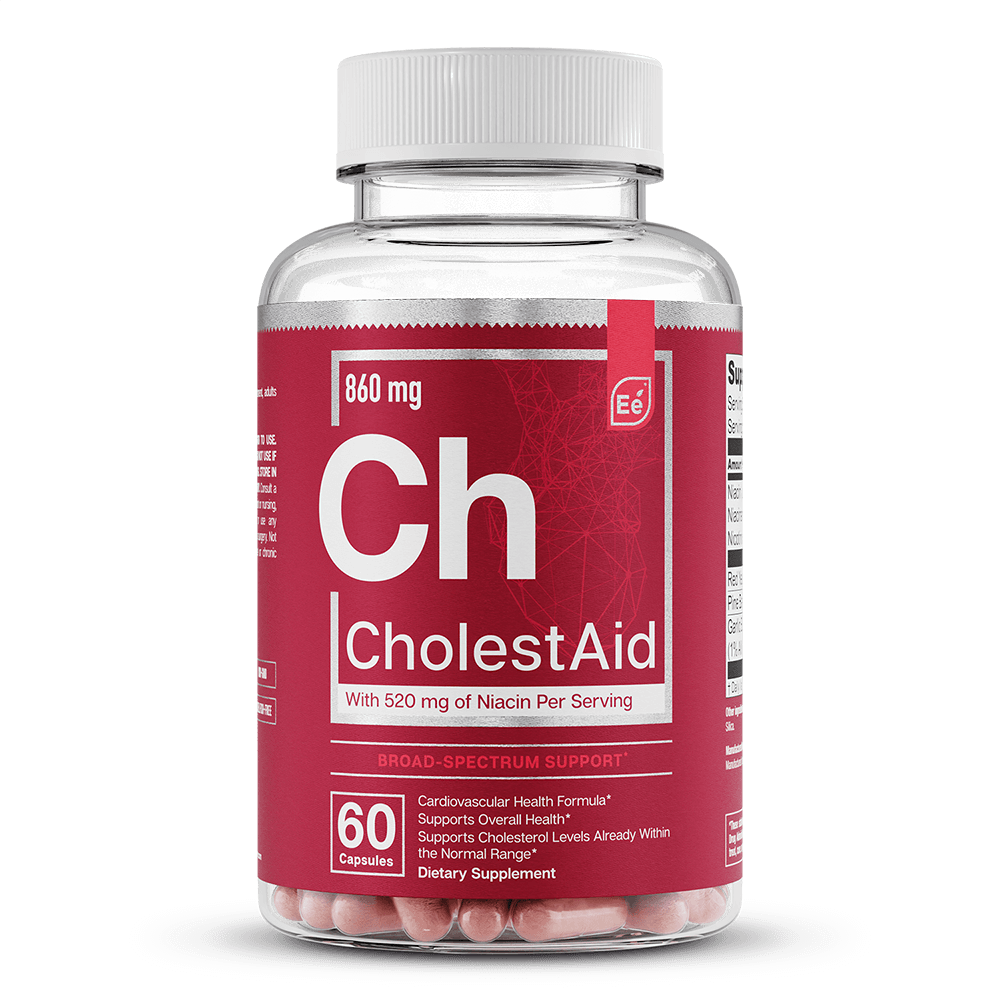Ashwagandha for Testosterone: Benefits, Dosage & More
In the pursuit of optimal health and vitality, many men are turning to time-tested natural solutions. One of the most talked-about herbs is ashwagandha, an ancient remedy that is gaining modern recognition for its potential to support male health, particularly when it comes to testosterone levels. If you're exploring natural ways to maintain your vigor, you’re in the right place.
What is Ashwagandha?
Ashwagandha (Withania somnifera), also known as "Indian ginseng," is a small evergreen shrub native to India, the Middle East, and parts of Africa. For over 3,000 years, it has been a cornerstone of Ayurveda, the traditional system of medicine in India, where it is revered for its restorative and rejuvenating properties.
An Ancient Adaptogen for Modern Stress
Ashwagandha is best known as an adaptogen. Adaptogens are a unique class of herbs that help the body resist and adapt to physical, mental, and chemical stressors. In our fast-paced world, managing stress is more critical than ever, especially since chronic stress can negatively impact hormonal balance.
The Science: How Ashwagandha Impacts Testosterone
The connection between ashwagandha and testosterone is an area of growing scientific interest. The herb appears to influence male hormones through a few key mechanisms, primarily related to its powerful stress-reducing effects.
Cortisol Reduction and Its Hormonal Effects
When you experience chronic stress, your body produces an excess of the stress hormone cortisol. Cortisol and testosterone have an inverse relationship; when cortisol levels are high, testosterone production can be suppressed. Both hormones are created from the same precursor, so a high demand for cortisol can negatively affect testosterone production.
Ashwagandha has been shown in clinical studies to significantly reduce cortisol levels. In one 60-day study, adults taking a high-concentration ashwagandha root extract saw a nearly 30% reduction in serum cortisol levels compared to the placebo group. By lowering cortisol, ashwagandha helps create a more favorable environment for healthy testosterone production.
Clinical Studies on Ashwagandha and Testosterone
Several studies have directly examined the effects of ashwagandha on testosterone levels in men.
-
A study involving men aged 40 to 70 found that those who took an ashwagandha supplement experienced an average 15% increase in testosterone compared to the placebo group.
-
Another 8-week study of active men who combined resistance training with 600 mg of ashwagandha daily saw a significant increase in testosterone levels, greater gains in muscle strength, and a larger reduction in body fat percentage compared to the placebo group.
While this research is promising, more extensive studies are needed to fully confirm these effects.
Beyond Testosterone: Other Ashwagandha Benefits for Men
While the potential to support testosterone is a major draw, the benefits of ashwagandha for men don't stop there.
Enhanced Muscle Strength and Recovery
Ashwagandha may be a powerful ally for your fitness goals. Studies have shown that supplementation, when paired with resistance training, can lead to significant increases in muscle mass and strength. It may also reduce exercise-induced muscle damage by lowering markers of muscle breakdown, helping you recover more effectively after intense workouts.
Improved Energy and Stamina
Traditionally used as a rejuvenating tonic, ashwagandha is trusted to combat fatigue and boost energy levels. Research suggests it can enhance athletic performance by improving cardiovascular fitness (VO2 max) in both healthy adults and athletes. This translates to better stamina and endurance, whether you're at the gym or simply navigating a busy day.
How to Choose a High-Quality Ashwagandha Supplement
With so many supplements on the market, choosing a high-quality product is crucial for safety and effectiveness. Here’s what to look for:
-
Standardized Root Extract: The most researched and beneficial part of the plant is the root. Look for supplements made from pure ashwagandha root extract.
-
Withanolide Concentration: Withanolides are the main active compounds in ashwagandha. A concentration of 5% withanolides is often recommended for efficacy.
-
Patented Formulas: Look for clinically studied, patented extracts like KSM-66®. KSM-66 is a high-concentration, full-spectrum root extract with extensive research backing its safety and effectiveness. It is extracted using a "green chemistry" process, without alcohol or chemical solvents.
-
Third-Party Testing: Choose brands that use third-party organizations like NSF to test their products, ensuring they meet strict standards for quality and purity.
Frequently Asked Questions
How long does it take for ashwagandha to work for testosterone?
Based on available research, studies showing an effect on testosterone levels typically last between 8 and 16 weeks, or roughly 2 to 4 months. Consistency is key, as the benefits appear to accumulate over time.
Can I take ashwagandha with other supplements?
For most healthy individuals, ashwagandha can be taken in the morning along with other vitamins and supplements. Taking it with food can help prevent potential stomach upset. However, it is always best to consult with your healthcare provider before adding any new supplement to your routine.
Are there any side effects of taking ashwagandha?
Ashwagandha is generally considered safe for short-term use (up to 3 months). Potential side effects are typically mild and can include stomach upset, nausea, or diarrhea, especially at large doses. Individuals with hormone-sensitive prostate cancer, autoimmune conditions, or thyroid conditions should avoid ashwagandha and consult their doctor.





